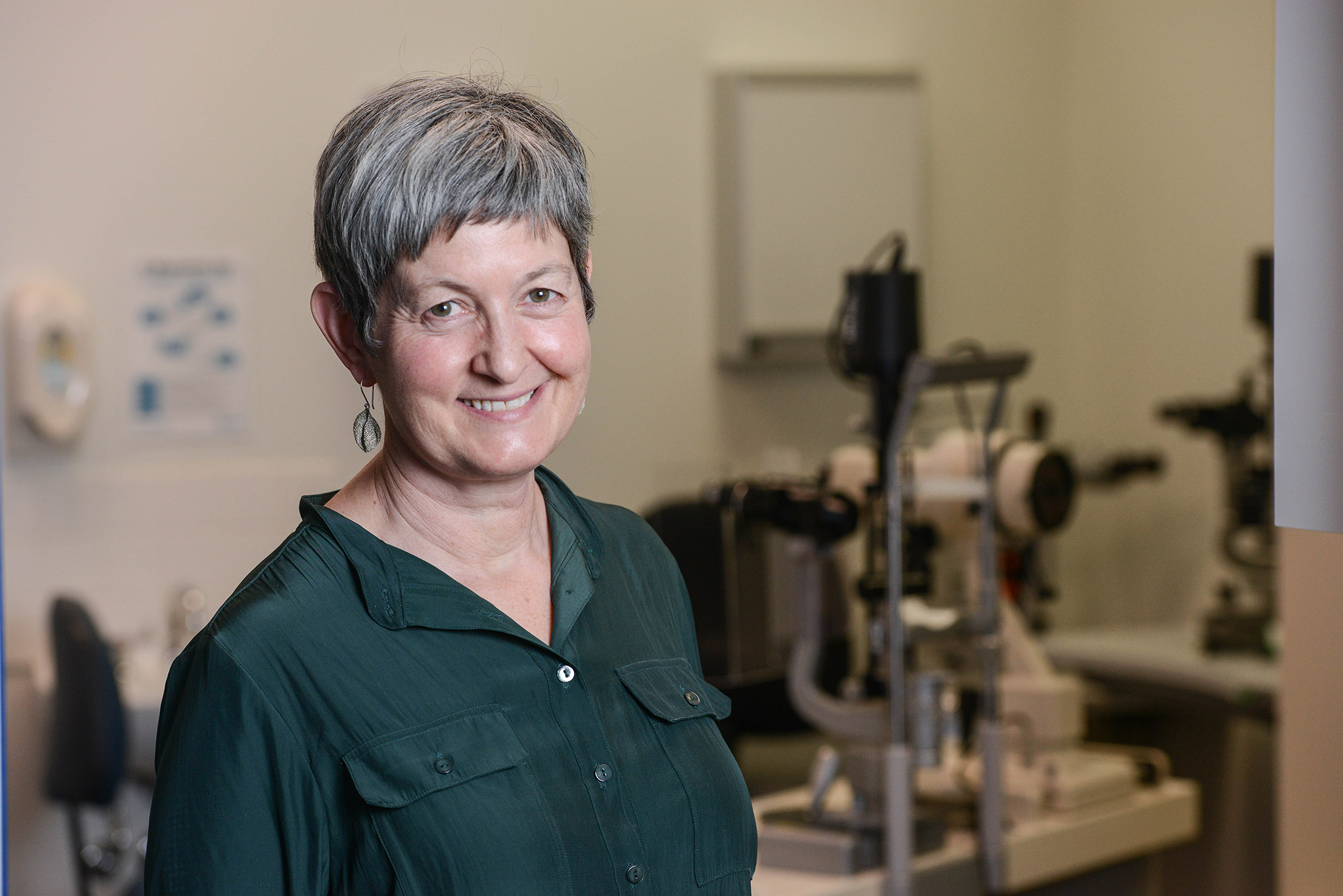
A world-leader of laboratory and clinically-based research in ophthalmology and vision science, Professor Justine Smith AM (PhD(Med) ’99) has chaired countless eye and vision meetings, won a host of international ophthalmology awards, and launched a global registry to improve eye cancer outcomes.
But to her peers and students, Justine is undoubtedly recognised as a tireless mentor and role-model for young clinician-scientists, especially women. This is evidenced through her work in establishing international mentoring programs for young ophthalmologists, publicising areas of under-representation, and initiating working groups to address gender inequities. Regrettably it stems in part from personal experience.
“When I was a junior doctor, before I even thought about doing research, I unfortunately had a few unpleasant experiences at the hands of senior women doctors,” Justine explains.
“My parents were always very supportive of my career, and I remember my dad saying when I was quite upset about one of these situations, ‘when you’re in their position, I know you’ll look after young women rather than putting them down.’”
Rising above this negative experience that can sadly deter many would-be professionals, Justine rose through the ranks in her field and found her own amazing mentors at Flinders.
“The ophthalmology department at Flinders was known to be one of the most successful academic research units in Australia and across the world,” Justine says.
“I was really fortunate to complete my PhD with the researchers in this department, especially to have a PhD supervisor like Keryn (Emeritus Professor Keryn A Williams AC FAHMS). They all helped me in different ways and opened many doors – guiding me in my first international meetings and collaborations.”
Justine’s formative years in research moulded her direction of knowledge, subsequently becoming a renowned expert on the potentially blinding group of conditions known as uveitis or inflammation in the eye. She was instrumental in identifying a new class of drugs, the so-called ‘TNF inhibitors’, as biologic treatments for these diseases and successfully translated her research (first generated in her PhD candidature at Flinders) into later world-first clinical trials in the United States.
Whilst waiting for her PhD to be assessed, Justine ventured to Singapore to work at their National Eye Centre as a clinician and gain some on-the-ground experience after she had stepped away from the clinic temporarily while undertaking PhD research. She then moved on to begin a post-doctoral fellowship at the Casey Eye Institute, Oregon Health Sciences University, Portland, where she rose through the ranks to full professor.
With the opportunity of opening a lab and moving her research group to her home state where her medical career first began, Justine launched her research program at Flinders in early 2013.
“I’m really proud of our team, we’ve achieved some amazing research,” Justine says.
“It’s fulfilling to have built up such an outstanding team and being able to train many different students to be researchers. I’m in their debt for the great program we have created.”
The extra time and dedication Justine gives to improving her field and the wider research community at Flinders is quite extraordinary. She leads large international study groups (such as the International Ocular Toxoplasmosis Study Group of 192 ophthalmologists in 48 countries); she is Deputy Director (clinical translation) of the Flinders Health and Medical Research Institute; and she sits on the Flinders Foundation Research Committee, which advises on research strategy and distributes close to one million dollars in seed grants annually, just to name a few!
“One thing that I’m really proud of professionally, is that I’m the only Australian to be President of ARVO, the largest global society for eye and vision research, from 2013 to 2014,” Justine says.
Justine is also the Editor-in-Chief of Clinical and Experimental Ophthalmology, the first woman to lead a top-tier ophthalmology journal. In one year, she achieved gender balance across the Editorial Board, established a social media presence, and redefined policy to ensure ethics compliance.
There’s no slowing down for Justine, continuing her recent efforts to raise awareness of the common eye infection, ocular toxoplasmosis, in Australia. So much so, her article on that very subject in The Conversation received nearly one million ‘reads’ and rapidly became the most read paper any Flinders author had ever published.
Another cause she has been working away at in the background and is now bringing to the fore is improving outcomes for sufferers of a rare eye cancer, vitreoretinal lymphoma, effectively lymphoma inside the eye.
“As it affects less than one person per million, and it has been very hard to improve on the poor outcomes because of that,” says Justine.
“We’ve been working for some years now to launch an international registry, which we pulled off last year, and are now starting to collect data from around the world, and pull together researchers, patient advocacy groups and hospitals to push this effort forward in a big way with the ultimate goal of finding what the best treatments are for this disease.”
Whether she’s discussing a rare cancer in a world-class laboratory amongst top researchers or communicating results of a minor examination in her rooms at Flinders Medical Centre, there is a common goal that shines through all of Justine’s efforts – making a real difference to a person’s situation and finding the best possible outcome for them, regardless of how difficult or hidden it may be.
Professor Justine Smith AM was awarded a 2022 Convocation Medal for outstanding leadership in the field of ophthalmology, serving as a tireless mentor and role-model for young clinician-scientists, especially women.

